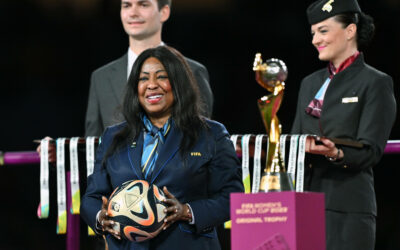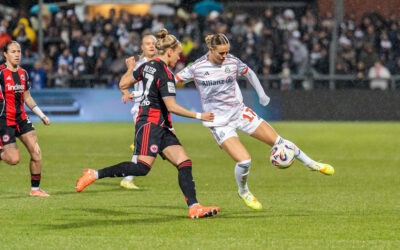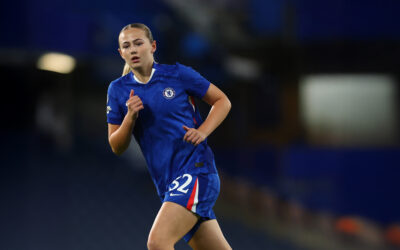Career path
After studying law at the University of Cologne, Dr Blask found his way into the sport industry. With his dissertation on the central marketing of media rights and competition law, he was able to familiarise himself with a topic that would soon become highly relevant in sports business. Since 1 January 2022, he has been the spokesman for the management of DFB GmbH & Co. KG, having previously been responsible for Marketing Sales Event & Operations as Managing Director. Prior to this, Dr Blask worked for DFL GmbH for 14 years in various roles, most recently as ‘Director Audiovisual Rights’ and member of the Executive Board.
In his role as Chairman of the Management Board, Dr Blask’s responsibilities include decisions relating to the German women’s national team, the Frauen-Bundesliga and the Women’s DFB Cup.
“When I heard about the idea of opening up a business platform, I was happy to be part of it in the first vodcast episode.”
Germany as the host of THE UEFA EURO 2027?
Back in 2021, women’s football was at crossroads before the UEFA EURO 2022 brought back excitement and big crowds of fans. Talking to our host Farina Fichtner-Zenker, the DFB Chairman got to review the strategy introduced by DFB three years ago called ‘FF27‘ which saw the following four main goals highlighted for the upcoming years for women’s football in Germany:
- Success with the national teams and clubs of the Frauen-Bundesliga winning international titles
- Increase in the number of active players, coaches and referees
- Double the media reach of women’s football
- Elevate proportion of women in committees and full-time management levels at DFB
Initially, this was supposed to support the association’s application for the FIFA Women’s World Cup 2027 which has been awarded to Brasil in the meantime. “Now we focus on 2029”, Dr Blask emphasises as Germany is among the contenders to host the European competition in five years. “Having the vision of hosting this kind of tournament as we saw it with the men’s competition in the summer, always makes it easier to develop together with the help of politics, society and economy.”
“At the moment, clubs and DFB are investing in women’s football but we want to build an ecosystem where the clubs and players pull earnings from the system.”

THe future of the Frauen-Bundesliga
The situation in the Frauen-Bundesliga has steadily improved in recent years. However, the league and the clubs still spend more money than they earn. Dr Blask explains what the next steps will be and cites increasing interest and reach as two of the most important components, supported by greater media coverage and more digital visibility. As everyone involved has similar goals, it will be important to ‘work hand in hand with the clubs’, as the DFB chairman puts it.
“We are sure that out of the interest the money will follow.”
The first steps were already taken before last season with a higher-budget media contract that provides for the broadcasting of all Frauen-Bundesliga matches by two TV stations. In addition, more and more clubs are moving selected matches to larger stadiums to attract more fans through a better matchday experience. To keep up with other fast-developing leagues such as the National Women’s Soccer League (NWSL) in the USA and the Women’s Super League (WSL) in England, it will be crucial to develop in a sustainable manner.



